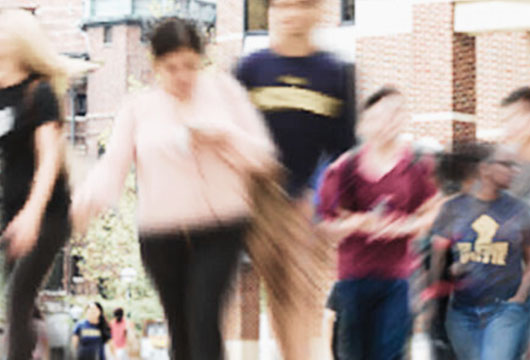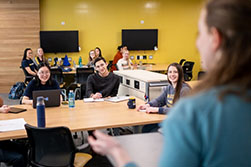| Preparing Future Faculty Seminar Mon, 02/10/2014 CRLT is accepting applications through February 24 for the May Preparing Future Faculty (PFF) Seminar, which interested graduate students can learn more about here. In this guest post, American Culture PhD candidate Mejdulene B. Shomali reflects upon her experiences in the seminar last spring. Although I can hardly believe it, in a year’s time, I will be applying for academic jobs and preparing to defend my dissertation. When I began my graduate program in 2009, I remember thinking I would never survive my preliminary exams. When I achieved candidacy, I remember thinking the dissertation was an immaterial dream. Now, one chapter away from completing what I thought would be an impossible document, I found myself wondering how my chosen academic communities will receive me. Will I be selected for interview? Will I make campus visits? Receive offers?
Read more |
| CRLT Directors: Farewell, and Welcome! Wed, 01/29/2014
Read more |
| Using Student Groups: Inclusive Practices Fri, 01/24/2014 Recent student activism and statements on diversity from academic leaders have led many U-M instructors to focus new attention on inclusive teaching, seeking ways to ensure all students feel welcome and able to succeed in their classes, regardless of race, ethnicity, or socioeconomic status. CRLT provides many resources to help you develop inclusive teaching strategies for your particular teaching context. To browse those, click on the 'Equity-focused Teaching' link under 'Resources'. Read more |
| Faculty-GSI Teaching Teams: Strategies for Success Sun, 01/05/2014
The CRLT Occasional Paper on "Teaching Effectively with GSI-Faculty Teams" highlights many benefits--for professor, GSIs, and students--of effective relationships among professors and grad students who teach together. As the literature on GSI-faculty relationships makes clear, though, such teamwork can sometimes pose significant challenges. U-M faculty have reported, among other issues, grappling with how to coordinate the work of all members of a teaching team, handle student complaints, and respond to various challenges to instructor authority. It's probably obvious but bears repeating: Establishing clear team guidelines and routine communication patterns early in the term can help prevent such problems--as well as provide structures for addressing them productively if they do arise later in the semester. Read more |
| Planning Your Courses around Student Learning Goals Fri, 12/20/2013 Polishing up your winter term course plans over the break? Hoping your students' final papers and exams will be even better than the ones you just finished grading? Much research on learning and teaching suggests that you can get your students on the right track now by designing your course around specific learning goals--whether you're teaching something new or tweaking a course you've offered before. If you determine early in the planning process what you ultimately want students to take away from the course, you can choose readings, create exams and paper assignments, and structure in-class activities in ways that all align tightly with those central goals. Here are a couple of online resources about applying such principles of "Backward Design" to the planning of college courses:
Read more |
| Teaching with Writing: New Sweetland Center Resources Mon, 11/25/2013 Are you looking for effective ways to integrate writing instruction into your courses? Curious about assigning blogging, for instance, but uncertain where to begin? Looking for ways to make the most out of student peer reviews, or individual reflective writing assignments? Hoping to use writing to foster student learning in a discipline where they might not expect it? In this guest blog, Shelley Manis, a faculty member at U-M's Gayle Morris Sweetland Center for Writing, highlights new online resources that can help you achieve any and all of those goals. This summer, several Sweetland Center faculty updated our existing Teaching Resources for Instructors based on popular requests from instructors across campus. To add to the advice provided in such existing resources as "Assigning and Managing Collaborative Writing Projects” and “Giving Feedback on Student Writing,” among many others, Sweetland developed three new guides that can help U-M instructors in any field navigate common challenges of teaching with writing. These include:
Each of these resources includes an overview of the teaching challenge(s) the resource addresses, some general considerations, several specific classroom strategies, a reading list for further exploration, and supplemental handouts.
Read more |
| #BBUM tweets on students' marginalization: What instructors can do in class Wed, 11/20/2013 You may have heard about the recent trending on Twitter of #BBUM, a series of tweets featuring brief student perspectives on "being black at Michigan." Some of the statements are about numbers while others are about interactions: being the "only one" in a class, or being expected to be a spokesperson. #BBUM being the only black person in class, and having other races look at you to be the spokesperson whenever black history is brought up.
— Terra (@_myPrivateJET) November 19, 2013
#BBUM the mental debate you have with yourself if you should ignore a remark by someone or speak up
— Lauren Elizabeth (@Foreign_Lo) November 19, 2013
#BBUM is working in study groups and your answer to the question always requires a double check before approval.
— Young Old Head (@LoooseCannon) November 19, 2013
Knowing such experiences and dynamics are present in U-M classrooms, what can instructors do? Read more |
| CRLT Director Connie Cook Honored by National Organization Tue, 11/12/2013 Last weekend, CRLT Executive Director Connie Cook was honored by the POD Network, the main national professional organization for teaching center directors and other educational development professionals. The group's highest honor, the "Spirit of POD Award" is given annually to an outstanding leader and innovator in the field.
Read more |
| Testing to Promote Student Learning Sat, 10/12/2013
The process of designing an exam can offer a great opportunity to ensure that your learning goals, instructional practices, and assessment techniques are all well aligned. Our website features several resources to help you thoughtfully design exams that reliably measure whether students have learned what you've been trying to teach them--and evaluate those exams fairly. These emphasize that effective exams Read more |
| Classroom Challenge: Handling Wrong Answers Tue, 10/01/2013 It's a common challenge: A student answers a question in class. But the answer is wrong. How do you respond?
We've located some resources from teaching centers around the country with suggestions for how to handle wrong answers. Some of the best suggestions include: Read more |


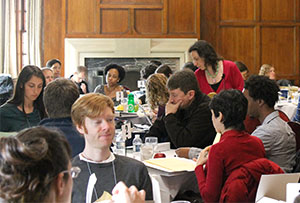 I would encourage anyone who feels mystified by the process of job applications and unsure of how to navigate the non-research elements of their academic career to participate in the 2014 PFF Seminar. PFF, like graduate school, is a brief but intense period of growth for students as they prepare to complete their graduate work and move on to the next phase. PFF gives participants breathing room to think in concrete ways about their future: At what kind of institution do you want to work? What kinds of classes are you prepared to teach? What strategies can you employ to navigate an academic job search and the demands of an academic career? And while it might be a scary question, PFF also provides an opportunity to ponder whether you want an academic position at all.
I would encourage anyone who feels mystified by the process of job applications and unsure of how to navigate the non-research elements of their academic career to participate in the 2014 PFF Seminar. PFF, like graduate school, is a brief but intense period of growth for students as they prepare to complete their graduate work and move on to the next phase. PFF gives participants breathing room to think in concrete ways about their future: At what kind of institution do you want to work? What kinds of classes are you prepared to teach? What strategies can you employ to navigate an academic job search and the demands of an academic career? And while it might be a scary question, PFF also provides an opportunity to ponder whether you want an academic position at all.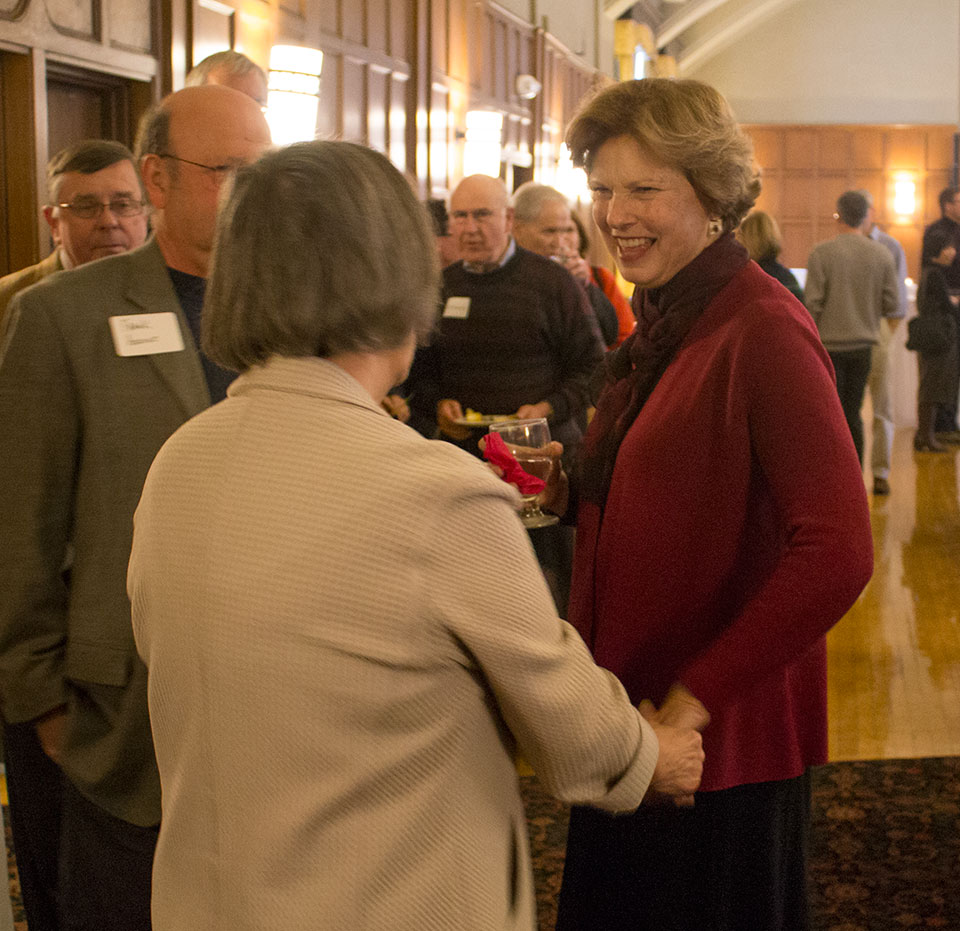 Earlier this month, CRLT bid an official farewell to our long-time Executive Director Connie Cook, who has led the Center for over 20 years. On January 9, hundreds of U-M teachers and administrators gathered in the Michigan League to honor Connie and celebrate her array of impressive accomplishments at the head of CRLT.
Earlier this month, CRLT bid an official farewell to our long-time Executive Director Connie Cook, who has led the Center for over 20 years. On January 9, hundreds of U-M teachers and administrators gathered in the Michigan League to honor Connie and celebrate her array of impressive accomplishments at the head of CRLT. As winter term gets underway, many U-M instructors are teaching in new GSI-faculty teams. How can you build productive collaborations from the start?
As winter term gets underway, many U-M instructors are teaching in new GSI-faculty teams. How can you build productive collaborations from the start? 
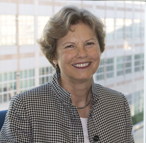 In the tribute read about Connie Cook at the group's annual meeting, she was lauded for her many influential publications and her generous mentorship of teaching center colleagues around the country. She was recognized in particular for her central role in "shaping the dialogue and teaching development programming on multiculturalism and diversity through her advocacy of inclusion in the work of her own Center, through a unique and wonderfully innovative theatre program with national reach, and through strong international outreach to China and other countries." She was characterized by her nominators as "a giant in our field."
In the tribute read about Connie Cook at the group's annual meeting, she was lauded for her many influential publications and her generous mentorship of teaching center colleagues around the country. She was recognized in particular for her central role in "shaping the dialogue and teaching development programming on multiculturalism and diversity through her advocacy of inclusion in the work of her own Center, through a unique and wonderfully innovative theatre program with national reach, and through strong international outreach to China and other countries." She was characterized by her nominators as "a giant in our field."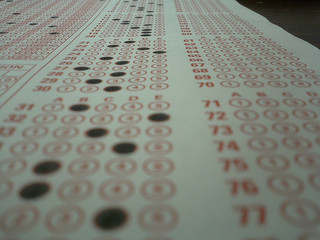 At this point in the semester, many courses are building toward a midterm examination. As a teacher, how can you best design such tests to motivate and assess student learning? How can you be sure that your classroom instruction adequately prepares students for the exam? How, in short, can you make the most of exam time as a learning opportunity for your students?
At this point in the semester, many courses are building toward a midterm examination. As a teacher, how can you best design such tests to motivate and assess student learning? How can you be sure that your classroom instruction adequately prepares students for the exam? How, in short, can you make the most of exam time as a learning opportunity for your students?